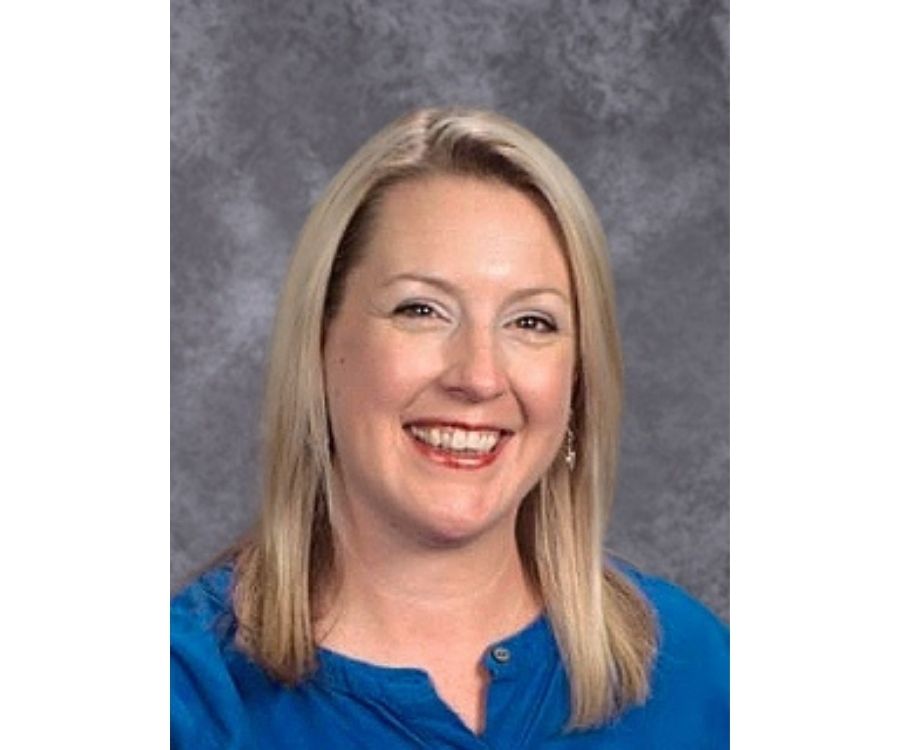Q&A with Herron-Riverside High School teacher Bonnie McNeely
The Mind Trust launched the Educators Assistance Award program in 2021 to help eliminate the financial barrier of continuing education for Indianapolis teachers. Funds help teachers advance their careers, grow as professionals, and impact students. Last year’s award recipients have already put those funds to good use.
We recently sat down with Bonnie McNeely, a math teacher and instructional coach at Herron-Riverside High School and a member of their founding staff in 2017. McNeely is leveraging an Educators Assistance Award to pursue a Master’s in Educational Leadership at Marian University. The discussion ranged from her experience wearing many hats as a member of a founding school team to what makes Herron-Riverside such a stimulating place to work.
Q: How did you come to be a member of the founding team at Herron-Riverside High School?
A: I was already a long-time educator and had been teaching at Herron High School for a couple of years when I was approached about a new opportunity. Our network was going to expand by adding Herron-Riverside High School. They asked if I wanted to be part of the founding team. The opportunity to build a school from scratch alongside other dedicated educators sounded like a once-in-a-career chance. I jumped right in.
Q: Describe what it was like to help get Herron-Riverside off the ground in those first years.
A: I was one of just seven people on the founding staff. We were trying to get Riverside off the ground in an old church building while our permanent home was being renovated and updated. As a founding member of Herron-Riverside, I wore a lot of hats and did a lot of school administrator activities because that’s what it took. I even acted as a dean temporarily.
My passion for teaching during those early founding days never wavered. Yet the farther we got into our journey as Herron-Riverside, the more stable we became. I noticed I had another passion. I didn’t want to stop teaching, but I knew I also wanted to help new teachers in the building grow their abilities too.
Q: How did you pursue that desire to expand your professional impact?
A: I still wanted to teach math. At the same time, I saw a path to expanding my professional impact and meeting a need at my school by becoming a math instructional coach. That led me to enrolling at Marian University in their Master’s of Educational Leadership program. After a recommendation from my school leader Katie Dorsey, I was able to apply for and receive an Educators Assistance Award to support that endeavor.
Something that has really stood out about Marian’s program so far is their emphasis on looking at things from the balcony instead of the audience. That means taking a wide view on things and identifying the stakeholders who need to be involved when rolling out a new initiative.
Q: How has Marian’s program impacted your leadership at Herron-Riverside?
A: Herron-Riverside uses a math support program for students taking Algebra 1 who need help accelerating their learning. In its first years, nobody on staff was the dedicated point person to run the program. This is an example of how we were all wearing a lot of hats. Since being in my program at Marian, I’ve been able to take more ownership of our math support program and leverage my learning to ensure it is conducted equitably and with students’ best interests in mind.
Q: How did you restructure the math program to ensure it equitably serves students?
A: I started by revamping the selection process. We previously used beginning-of-year assessment cut scores to determine which freshman would be placed in the program. These freshman stayed in the program the whole year. With freshman coming to us from middle schools across the city, that single data point didn’t actually tell us enough about students to make a decision that impacted them for an entire year.
To solve for that, I created a process that re-evaluated students at mid-year and asked for teacher recommendations to flesh out the hard data. This allowed students who had mastered material to exit the program early while giving students who had started to struggle as the semester went on a chance to enter the program and get the support they needed.
Q: What did you learn during the pandemic about building relationships and being agile on behalf of students?
A: Herron-Riverside is a place of relationship and community. Relationships are so key. For so many kids, school is where you are known. I take pride in knowing the names of every student in our building.
The pandemic definitely forced us to be nimble and make adjustments. We had to ask questions like, “How can we best deliver instruction when we aren’t face to face?” We learned a lot about how to engage students effectively and what works virtually versus in-person. Building and maintaining relationships is difficult in a virtual setting. Through the whole experience, I believe in-person is still what is best for kids.
Some things we did during the pandemic have even stayed with us now that we are back in-person. For instance, I offer virtual office hours to ensure more students can take advantage of them. We’ve also leveraged our online learning portal to make lessons more accessible for students who miss days of school, whether that’s COVID-related or not.
Q: What sets Herron-Riverside apart?
A: For me it’s really three things. One, we achieve a lot of growth. Our students grow at twice the national average in math. Two, Herron-Riverside is such a diverse community. That shows up across our student body and our staff. It is a pleasure to see diversity be such a strength for us. And three, without a doubt, my colleagues at Herron-Riverside are the highest-quality educators I have ever worked with.

